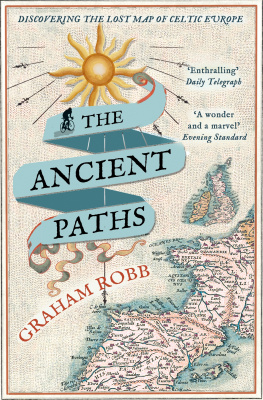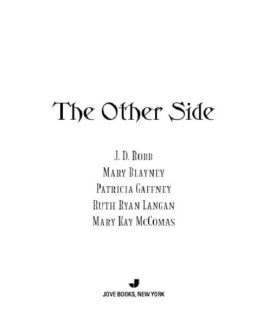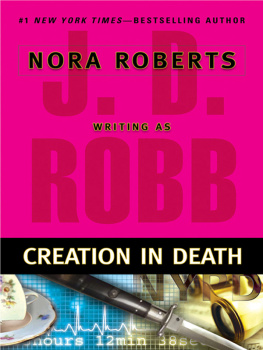First published in 1997 by Curzon Press
Published 2013 by Routledge
2 Park Square, Milton Park, Abingdon, Oxon OX14 4RN
711 Third Avenue, New York, NY 10017 USA
Routledge is an imprint of the Taylor & Francis Group, an informa business
1997 Peter Robb
All rights reserved. No part of this book may be reprinted or reproduced or utilised in any form or by any electronic, mechanical, or other means, now known or hereafter invented, including photocopying and recording, or in any information storage or retrieval system, without permission in writing from the publishers.
British Library Cataloguing in Publication Data
A catalogue record for this book is available from the British Library
Library of Congress in Publication Data
A catalogue record for this book has been requested
ISBN 978 - 0-7007-0625-9
ISBN 978-1-3150-2690-9 (eISBN)
Many obligations have been incurred while this work was in preparation. First and last, I must thank my wife, Elizabeth, who gave up her own concerns to work as my research assistant in India for almost a year, greatly increasing the material I was able to collect. Her support over the long period during which the work subsequently evolved was exceeded only by her determination in the final stages that I should finish it off once and for all. Also to Benjamin and Thomas, my two sons, my thanks: this project is about as old as they are. It too (unexpectedly and after last-minute discovery) will turn out to be twins.
The work owes a debt to Clive Dewey, for his studies of British agrarian policy and the social and intellectual history of officialdom, and for his keen comments on my own efforts. I am pleased to note also the special contributions of 'Tom' Tomlinson, who (with his wife, Caroline) shared a period of research in New Delhi, and of Walter Hauser for invaluable advice on researching in Patna and on other matters. To Binay Chaudhuri's work too I have had repeatedly to return; once he summed up my own conclusions for me in ways which made me understand them better. In SOAS, K.N. Chaudhuri and John Harrison were always encouraging; more recently Terry Byres' themes and interests suggested lines of inquiry; at the end David Arnold pointed out some typographical errors and encouraged me to keep to the overall plan of the work. Five who have sadly since died played a partthree close colleagues at SOAS, Kenneth Ballhatchet, Nigel Crook and Burton Stein; Neil Charlesworth for his great ability to think in wider contexts and against current fashion; and Eric Stokes who was an inspiring example though an enigmatic critic.
Many other colleagues and students in classes and seminars have helped and criticised my ideas. For the middle phases of the work, I remember particularly warmly discussions with three of my research studentsSanjay Nigam, Bindeshwar Ram and I.G. Khanwhose interests lay closest to those of this book, and also with Chitta Panda while he was carrying out his research at Oxford, and with Rajat Datta on his many visits to SOAS from King's College London. More recently, while the appearance of this work was delayed because of my chairmanship of the SOAS Centre of South Asian Studies and other research and publishing projects, I had the chance to benefit from exchanges of views with another generation of my students, namely Sanjoy Bhattacharya, Andrew Grout, Shompa Lahiri, Alex McKay, Pragati Mohapatra, Subhajyoti Ray, and Sanjay Sharma. Very late in the day, Suhit Sen helped by embarking on a project which at first looked quite akin to this one, on zamindari abolition. The recent period saw an expansion of some of the concerns of this project, particularly a stronger orientation towards the study of policy in the broader context of the growth and development of the state. It is thus related to other work, on law, labour and identity, which preoccupied me during this interval.
Personal or intellectual debts should also be noticed to the published work and contributions in seminars and/or private discussions of others too numerous to list; but most of them are included among the participants, of whom mention must be made, in the conferences in London in 1980 on the 'external dimension' in South Asia, the workshop on 'arrested development in India' under Dietmar Rothermund and Clive Dewey in Heidelberg in 1984, the 'peasant consciousness' conference at Bellagio organised by Majid Siddiqi in 1987, and the three associated workshops at SOAS on agriculture and economic organisation, organised by me, Kaoru Sugihara, Utsa Patnaik, Burton Stein, and Sanjay Subrahmanyam, in July 1992. In the late stages of writing I have benefited particularly from editing two books from these workshops, on Indian agriculture, where I found methodologies congenial to my own, and (jointly) of Japanese contributions to South Asian rural studies, where contrasting perspectives helped clarify my thinking. For similar reasons, I am indebted also to the London third-world economic history group, and especially to a long, fruitful series of informal three-man seminars held with David Anderson and Ian Brown on peasants in the colonial world.
Versions of parts of the present volume or its counterpart were read at several venues in SOAS, and also at the Centre of South Asian Studies, Cambridge, St. Antony's College, Oxford, at the Imperial History seminar at the Institute of Historical Research, London, at the British Association of South Asian Studies' meeting in Sussex, at the Economic History Society's conference at Exeter, at an informal seminar on 'stratification' at Leicester, at the Canadian conference on India and the National Congress in Montreal, at Professor Ravinder Kumar's seminar at the Nehru Memorial Library, New Delhi, at the Department of History and the British Council in Calcutta, at Osaka City University, and at the New Zealand Asian Studies conference in Auckland. All these occasions produced helpful comments. The editors and readers of several journals and collections of essays have commented on articles which foreshadowed or have been incorporated in parts of the book.. It is 'In search of dominant peasants. Notes on the implementation in Bihar of the Bengal Tenancy Act of 1885' in Clive Dewey (ed.), Arrested Development in India. The historical dimension (Manohar Publications, New Delhi 1988), pp. 188-222. Some shorter extracts or paraphrases, cited in footnotes, have also been included, notably from 'Law and agrarian society in India. The case of Bihar and the nineteenth-century tenancy debate', Modern Asian Studies 22, 2 (Cambridge University Press, 1988), pp. 319-54, and 'Ideas in agrarian history. Some observations on the British and nineteenth-century Bihar', Professor Eric Stokes Memorial Lecture (May 1989), Journal of the Royal Asiatic Society 1 (1990), pp. 17-43.
I have depended greatly on the riches of the Library of the School of Oriental and African Studies, the India Office Library and Records (now the Oriental and India Office Collections of the British Library), the manuscripts and reading rooms of the British Library, the National Archives of India, the Bihar State Record Office, Patna, and the Bodleian Library, Oxford. Janet Marks, formerly executive officer in the SOAS Centre of South Asian Studies, helped with the preparation of the manuscript. Finally, I have received financial assistance on more than one occasion from the Research Committee at the School of Oriental and African Studies. My thanks to all of these.










